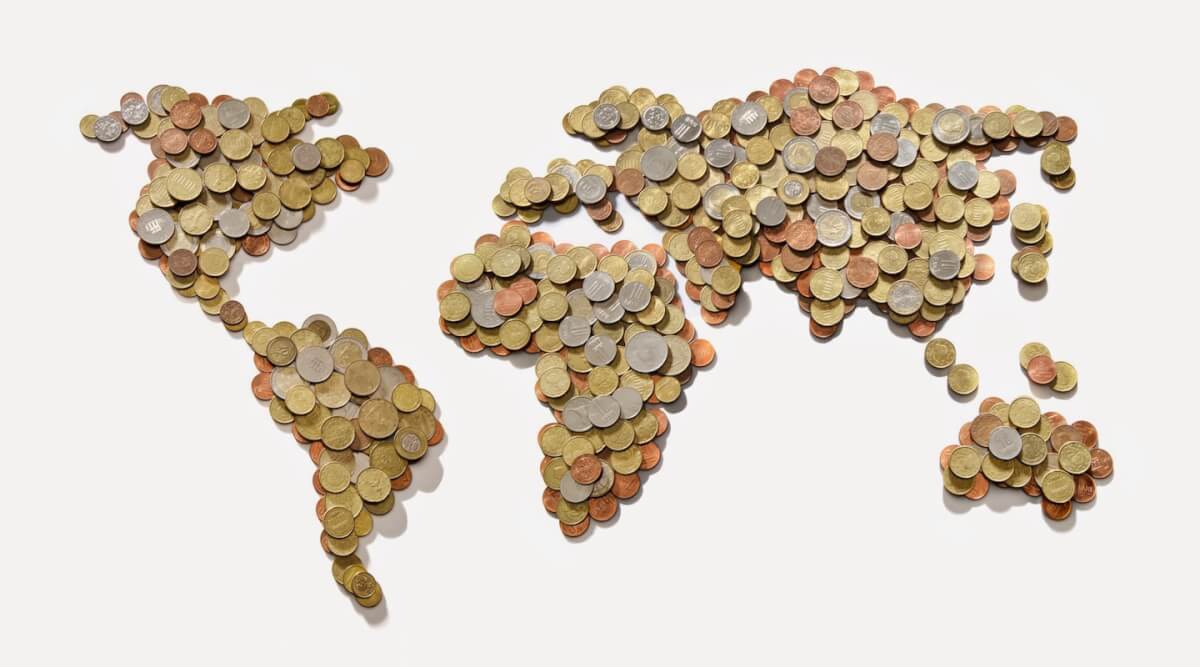What are the strongest currencies in the world? (2024)
The strongest currency in the world might not be the one you think it is. Discover the top 10 global currencies and our guide to each of them.

People have always moved to improve their work prospects, and that has never been truer than in today’s global marketplace. The millions of people currently working abroad have caused the money remittance industry worldwide to explode. A remittance is - quite simply - a money transfer made by a foreign worker back to an individual in their home country. Incredibly, money transferred this way to developing countries is now nearly on par with the amount given in financial aid. In 2014 remittances to developing countries totalled a staggering $436 billion, out of a total of $583 billion worldwide.
Setting off abroad for the chance to earn better money and then sending money home is nothing new - but global remittances have experienced a sharp upward turn since 2000, tripling between 2000 and 2012. As a result of the rise the G8 summit of 2004 decided to make it cheaper for people to send money home and in 2008 the World Bank started a database of remittance prices, called the Remittance Prices Worldwide Database. This allows for comparison and benchmarking, which in turn puts pressure on remittance service providers to give better quality and improve the prices for customers. When dealing with the amount of money that passes through the remittance industry, a cut in price can have huge effects. Bill Gates (who's a champion of remittance industry regulation), pointed out that if remittance costs were cut in half, an extra $15 billion a year would be available to countries in the developing world.
India, China and the Philippines are the top three countries, with France and Mexico running closely behind. In 2013, they received the following (in USD)
In terms of continents, Asia is the biggest recipient by far - in 2012, migrants from China and India sent home a staggering $130 billion.
Banks actually handle the majority of remittances, but three main money transfer operators dominate the non-bank market: Western Union, MoneyGram and Ria. Between them they operate 1.1 million retail locations, across 200 countries. However their monopoly on the industry is being challenged. Companies like Wise are able to offer a similar service, but digitally and at a lower price. Wise, being an online service that utilises peer-to-peer technology, has far lower overheads and can offer cheaper fees than what a bank or a money transfer operator charges.
Money transfer operators have long been used by fraudsters, to the extent that Western Union detail some of the most common scams on their website. The fact that you don’t need a bank account, and only minimal identification, make traditional remittance companies attractive to unscrupulous characters who are looking to part the naive from their cash. Sending money to developing countries comes with its own set of challenges - many people have no access to a bank account, let alone the internet or even a phone line. As mentioned above, the backlash against remittance fees has well and truly started, with many calling for stricter regulation on the fees charged. In November 2014, the Labour MP Tessa Jowell started a campaign to cap excessive charges. Whether successful or not, this publicity has put high street money transfer operators in the spotlight. For more information, read our article which looks in more details at the various money transfer options, and the pros and cons of each.
As more remittance recipients have access to financial services such as basic bank accounts, and internet use increases, there is no doubt that fast and cheaper online transfer will become more popular. It will be interesting to see how the high street money transfer operators step up to this challenge - but one thing is for sure: Companies like Wise are giving customers greater choice, safety and control, which can only be a good thing for those sending and receiving money internationally.
*Please see terms of use and product availability for your region or visit Wise fees and pricing for the most up to date pricing and fee information.
This publication is provided for general information purposes and does not constitute legal, tax or other professional advice from Wise Payments Limited or its subsidiaries and its affiliates, and it is not intended as a substitute for obtaining advice from a financial advisor or any other professional.
We make no representations, warranties or guarantees, whether expressed or implied, that the content in the publication is accurate, complete or up to date.

The strongest currency in the world might not be the one you think it is. Discover the top 10 global currencies and our guide to each of them.

If you bank with Chase UK®¹ and you’re worried about the security of your payment card, you’ll be looking for quick and convenient ways to cancel a Chase card...

Looking for Christmas savings tips? You’re in the right place. As the costs of living increase, and rising interest rates push up mortgage repayments for many...

If you’re planning a holiday or business trip, you’ll need to work out the cost of spending in a different currency. Many people these days choose to spend on...

For customers of Wise Payments Ltd, sending or holding money in the Wise account, we safeguard it in keeping with Wise’s regulatory obligations in the UK. We...

A handy guide to the sort code used in UK banking, including what it is, what it looks like and how to find a sort code.